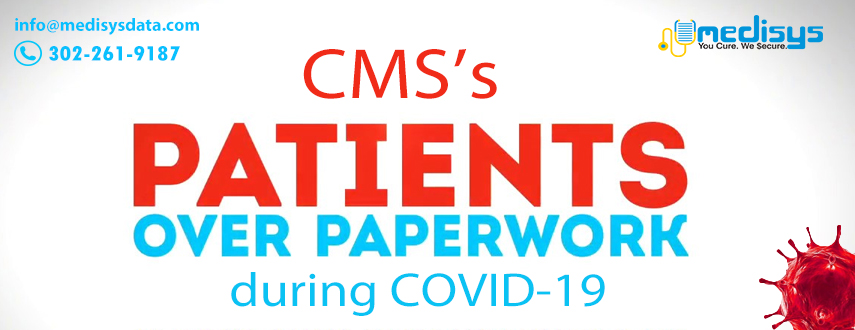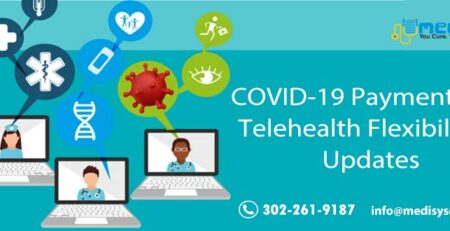The CMS’s Patients Over Paperwork initiative streamlines regulations to reduce burden, increase efficiencies, and improve the beneficiary experience. The Centers for Medicare & Medicaid Services (CMS) took some actions to protect the health and safety of our nation’s patients and providers in the wake of the 2019 Coronavirus (COVID-19) outbreak.
What is Patients over Paperwork?
CMS’s always priority is to put patients first. CMS Administrator Seema Verma initiated the “Patients over Paperwork” initiative in 2017. Patients over paperwork is in accord with President Trump’s Executive Order that directs federal agencies to ‘cut the red tape’ to reduce heavy regulations. This helps patients by letting doctors and non-physician practitioners concentrate on care instead of paperwork.
The CMS is putting patients first by reviewing and streamlining their regulations. Patients over Paperwork benefits:
- Reduce unnecessary burden
- Increase efficiencies
- Improve the beneficiary experience
In carrying out this internal process, CMS is pointing out and removing regulatory problems that get in the way of providers spending time with patients.
Patients over Paperwork reduce unnecessary regulatory burden, so that providers can concentrate on their primary mission i.e. improving patient health outcomes.
How does “Patients over Paperwork” work?
Steering Committee
Patients over Paperwork is well underway. CMS have established an executive-level Burden Reduction Steering Committee, which will take the lead on co-ordinating burden reduction across all of CMS. This Steering Committee oversees and prioritizes these reform efforts and ensures that CMS has the right collaboration across the Agency to drive results.
Customer Centered Workgroups
CMS established customer-centered workgroups focusing first on clinicians, beneficiaries, and institutional providers. The job of these workgroups is to learn from and understand the customer experience, internalize it, and remember these perspectives as we do this work. Over time, CMS will establish similar workgroups for health plans, states and suppliers.
Journey Mapping
CMS will use tools to capture customer perspectives, like human-centered design and journey mapping the customer experience. Also, CMS will establish mechanisms to share across CMS what they learned from customers so the team will have benefit from that input.
Reducing Home Health Burden with Human Centered Design
CMS is always actively ensuring to reduce home health administrative burden and improve customer experience. Below is an informational update on CMS’s efforts.
Patients are always at the center of CMS’s work. CMS’s Patients over Paperwork on-site engagement team recently focused on customers across the home health continuum. They understood about home health challenges. In this course of 4 months, CMS’s team met with close to 100 home health agencies’ management, staff, and patients, as well as subject matter experts and home health association-representatives through interviews, observational visits, and listening sessions.
Based on the information CMS gathered, CMS’s team created an illustration to reflect the home health experience: “The Home Health Journey: Navigating the Home Health Maze” that shows key challenges home health agencies (HHAs) and their clients might face when navigating regulations and requirements.
Put Patients Over Paperwork
Due to COVID-19 outbreak in our nation, CMS is temporarily removing paperwork requirements and letting clinicians spend more time with patients. Hospitals will not be compulsory to have written policies on processes and visitation of patients who are in COVID-19 isolation. Hospitals will also have enough time to share patients a copy of their medical record.
People with Medicare now have wider access to respiratory devices and equipment such as non-invasive ventilators, multi-function ventilators, respiratory assist devices, and continuous positive airway pressure devices. Medicare will now cover respiratory-related devices and equipment for any medical reason determined by clinicians so that patients can get the care they need; previously, Medicare covered them under certain circumstances.
The agency will continue to engage in oversight activities but will suspend requesting additional information from providers, healthcare facilities, Medicare Advantage and Part D prescription drug plans, and States. CMS is also re-prioritizing scheduled program audits in Medicare Advantage, Part D plans, and Programs of All-Inclusive Care for the Elderly (PACE) organizations. Re-prioritizing these audit activities will let CMS and the organizations to give attention to patient care. CMS is also modifying the calculation of the Year 2021 and Year 2022 – Part C and D Star Ratings to address the expected disruption to data collection and measure scores posed by the COVID-19 pandemic.
Reduce your billing burden with our Billing Service, you focus on your patients and we will reimburse payment from insurance companies for rendered services.
Request a call back now to know how we can help.











